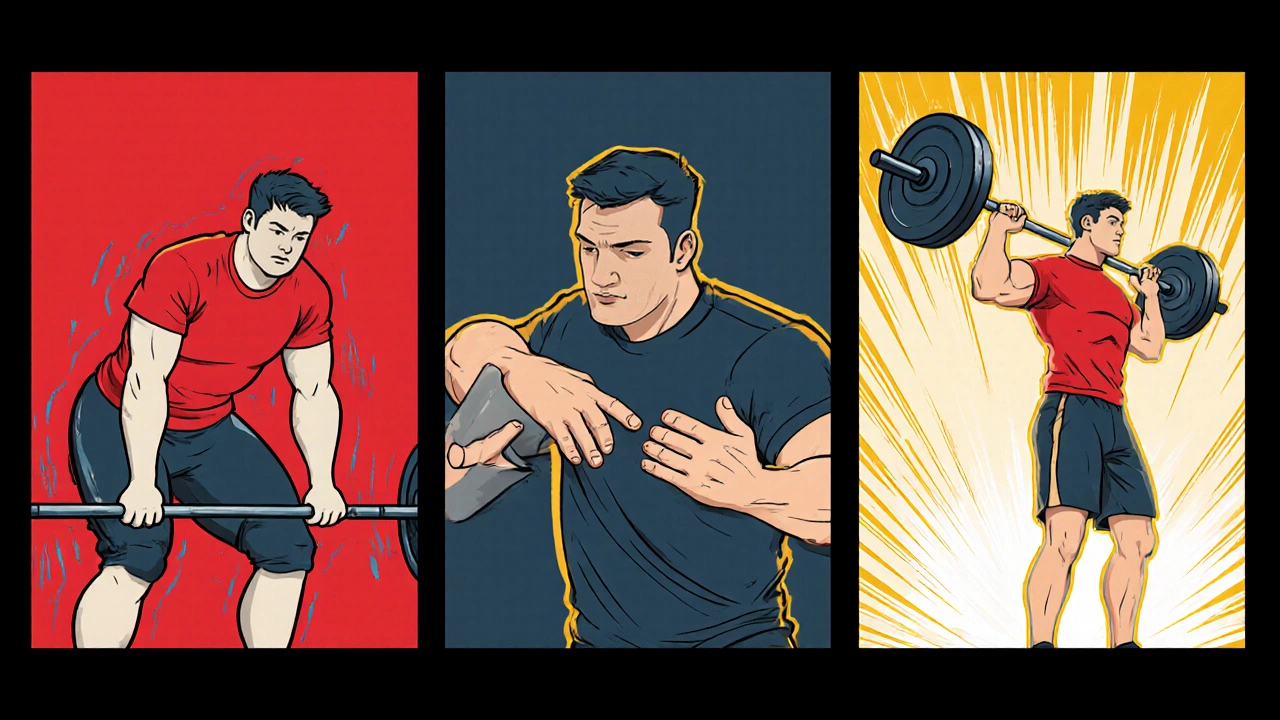
Personal Trainer Value Calculator
Personal Trainer Value Assessment
Answer a few questions to determine if a personal trainer is worth the investment for your fitness journey.
Results
You’ve been thinking about hiring a personal trainer. Maybe you’ve stared at their Instagram posts, scrolled through reviews, or seen the price tag and winced. $80 an hour? That’s a lot for one session. But then you think about your last gym attempt-how you showed up, did the same three exercises, got bored, and quit after two weeks. So you ask yourself: is it worth spending money on a personal trainer?
What You Actually Pay For
A personal trainer isn’t just someone who watches you lift weights. You’re paying for expertise, accountability, and a custom plan built for your body, goals, and schedule. Think of it like hiring a plumber. You don’t just want someone to turn on the faucet-you want someone who knows which pipe is leaking, why, and how to fix it without making it worse.
Most people who train on their own make the same mistakes: poor form, inconsistent routines, overtraining one muscle group, or not pushing hard enough. A good trainer spots these issues fast. One client I worked with in Auckland kept injuring her shoulder every time she did overhead presses. Turns out, she had tight lats and weak scapular stabilizers. She’d been doing the exercise for years, thinking she just needed to ‘go heavier.’ We fixed her mobility in three sessions. No more pain. No more missed workouts.
Cost vs. Results
Let’s talk numbers. In New Zealand, personal training averages $60-$120 per hour. Group sessions drop to $25-$40. Online coaching can be as low as $30-$60 per week. Compare that to the cost of wasted time, injury rehab, or buying equipment you never use. A $100 resistance band that gathers dust? That’s $100 gone. A trainer who helps you lose 5kg in 10 weeks? That’s better sleep, more energy, and clothes that fit again.
Studies show people who work with trainers stick to their programs 3x longer than those who go solo. A 2023 review in the Journal of Strength and Conditioning Research found that clients with a trainer lost 30% more body fat over six months than those who trained alone-even when both groups followed the same workout plan. Why? Because the trainer adjusted the plan, gave feedback, and showed up-even when you didn’t feel like it.
Who Benefits Most
Not everyone needs a trainer. But some people absolutely do.
- If you’re recovering from an injury: A trainer who understands rehab protocols can help you rebuild strength safely. Physical therapists often refer patients to trainers for post-rehab conditioning.
- If you’ve hit a plateau: You’ve lost 10kg, but now you’re stuck. Your body’s adapted. You need a new stimulus-and a trainer knows how to change rep schemes, tempo, and volume to shock your system again.
- If you’re new to fitness: Learning proper squat form, deadlift technique, or how to breathe during a plank takes guidance. One wrong rep repeated 50 times becomes a bad habit. A trainer prevents that.
- If you’re time-poor: You’ve got a full-time job, kids, and a commute. A trainer designs 30-minute高效 sessions that deliver results. No fluff. No guessing.
On the flip side, if you’re already consistent, know your form, and have clear goals, you might not need a trainer. A good app or online program might be enough. But if you’re unsure, inconsistent, or frustrated-then a trainer isn’t a luxury. It’s a shortcut.

What to Look For
Not all trainers are created equal. Here’s what actually matters:
- Certification: Look for REPs NZ (Register of Exercise Professionals) or equivalent like NASM, ACE, or CSCS. These require continuing education and practical exams.
- Experience with your goal: Want to run a marathon? Don’t hire someone who only trains bodybuilders. Ask for examples of past clients with similar goals.
- Communication style: Do they listen? Do they explain why you’re doing an exercise, not just how? A good trainer teaches you, not just pushes you.
- Real reviews: Look for video testimonials or before/after photos-not just five-star ratings. Ask for contact info from a past client (yes, really).
Avoid trainers who sell supplements, promise quick fixes, or act like they’re the only one who knows how to train. Real expertise doesn’t need hype.
Alternatives That Work
You don’t have to go full personal training to get results. Here are smarter, cheaper options:
- Group classes: Small group training (4-6 people) at local gyms often costs $30/hour. You get personalized attention without the solo price tag.
- Online coaching: Platforms like Future or TruCoach give you weekly check-ins, video form feedback, and custom plans for $40-$80/month. Great if you’re self-motivated but need structure.
- One-off sessions: Hire a trainer for 2-3 sessions to learn proper form, then train on your own. Use those sessions to build confidence, not dependency.
I’ve seen clients start with one session a week, then drop to biweekly, then monthly. It’s not all or nothing. You can scale down as you get better.

The Hidden ROI
Money spent on a trainer isn’t just about muscle gain or weight loss. It’s about long-term health. Poor movement patterns lead to chronic pain. Chronic pain leads to inactivity. Inactivity leads to higher healthcare costs down the road.
One client, a 52-year-old accountant, started training to fix his lower back pain. After three months, he stopped taking painkillers. After six months, he walked his dog daily without wincing. He didn’t just lose weight-he regained his independence. That’s not a fitness win. That’s a life win.
Think of a personal trainer as insurance. You hope you never need it. But when you do, you’re glad it’s there.
When It’s Not Worth It
There are times when hiring a trainer won’t help:
- You’re not ready to commit: If you’re still debating whether to go to the gym, a trainer won’t magically fix that. Start with free YouTube workouts or a 10-minute walk every day.
- You’re on a strict budget: If $80 a week would mean skipping groceries or bills, then it’s not the right time. Use free resources until you’re in a better place financially.
- You have a medical condition: If you have heart disease, uncontrolled diabetes, or recent surgery, see a physiotherapist first. A trainer can’t replace medical advice.
There’s no shame in waiting. Fitness is a lifelong journey. The right trainer at the right time makes all the difference.
Final Thought
Spending money on a personal trainer isn’t about vanity. It’s about efficiency. It’s about avoiding years of trial and error. It’s about getting stronger, healthier, and more confident-not just in the gym, but in your life.
If you’ve tried going it alone and felt stuck, frustrated, or hurt-you’re not failing. You just haven’t had the right support yet.
One session might be all it takes to change everything.
How often should I train with a personal trainer?
Most people start with 1-2 sessions per week. After learning the basics, many drop to once a week or every other week for check-ins. Some do monthly sessions just to stay on track. It depends on your goals, budget, and how much you’ve learned.
Can I get results without a personal trainer?
Yes, but it takes more time, discipline, and self-education. Many people succeed with apps, YouTube videos, or group classes. But if you’re inconsistent, unsure of your form, or plateauing, a trainer speeds up progress and reduces injury risk.
Are online personal trainers worth it?
For many, yes. Online coaches offer custom plans, video feedback, and accountability at a fraction of in-person rates. They’re ideal if you’re self-motivated but need structure. Look for coaches who respond within 24 hours and review your form regularly.
What’s the cheapest way to get personal training?
Group training at local gyms, community centers, or online coaching platforms are the most affordable. Some trainers offer package deals (e.g., 10 sessions for $500). You can also book one or two sessions to learn key movements, then train on your own.
How do I know if my trainer is good?
A good trainer listens, asks questions about your life and goals, explains why you’re doing each exercise, and adjusts your plan based on your progress. They don’t yell, sell supplements, or act like they’re a celebrity. They’re a teacher, not a drill sergeant.
